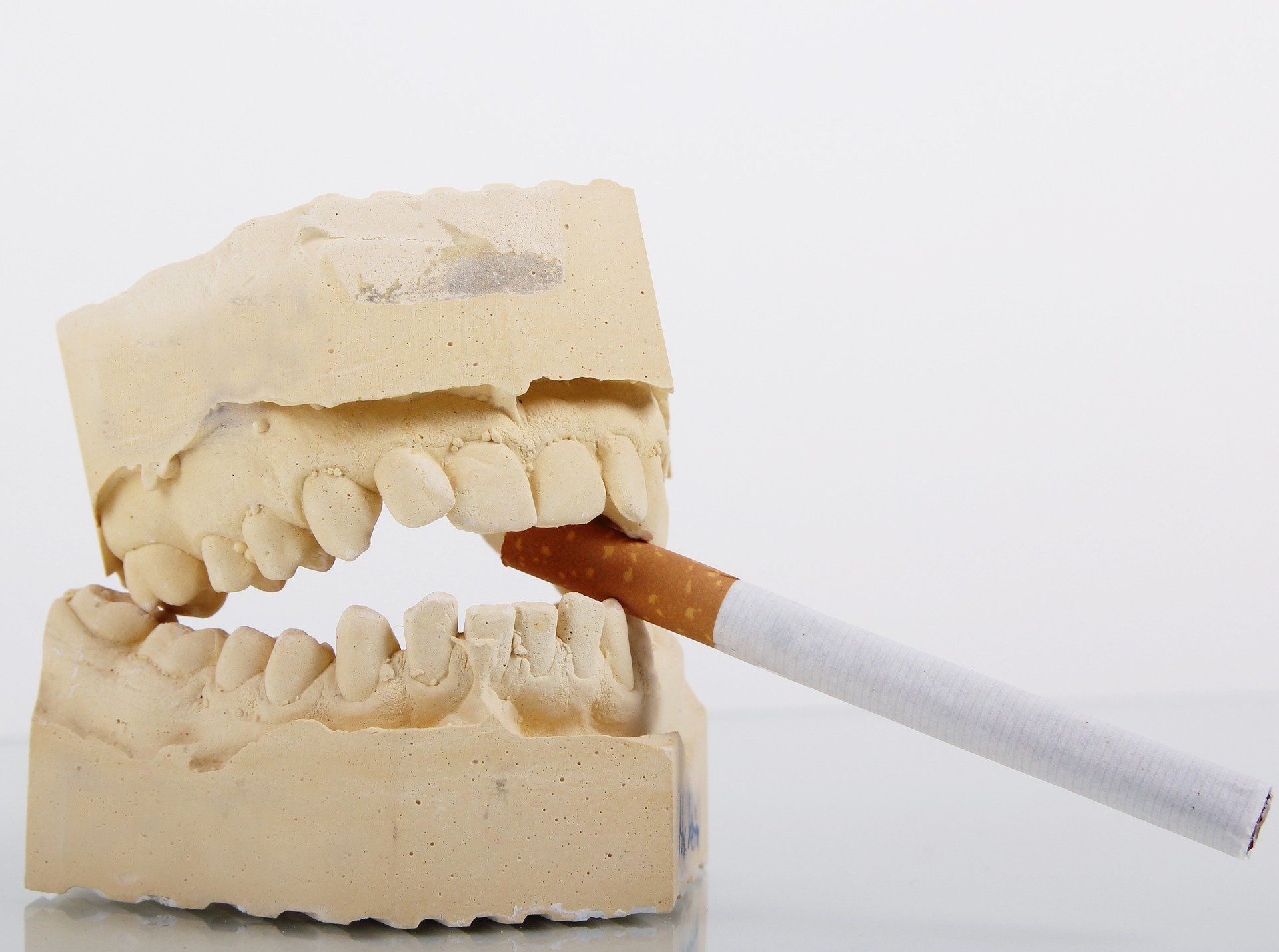Dental Health & Smoking
Dr Alex Silman • August 24, 2020

When you smoke, it can cause stained teeth and bad breath. Worse still, it can lead to oral cancer, tartar and gum disease. By taking preventative steps, you can reduce the harm that smoking causes to your oral health.
Smoking can cause major damage to your dental health. Because it increases your risk of developing gum disease, it can lead to tooth loss. It also reduces the supply of blood to your mouth. These factors can lead to delayed healing after oral surgeries like tooth extractions.
Because of smoking, you will have a higher risk of developing oral cancer, plaque, tartar and gum disease. You may suffer from a loss of taste and smell. While some of these issues are fatal, other problems may be merely cosmetic like having stained teeth. By scheduling a visit with a dental clinic, you can prevent and alleviate smoking-related issues.
How Does Smoking Stain Your Teeth?
If you have yellow teeth, it may be caused by smoking. Tar and nicotine can stain your teeth. Over time, your teeth may even turn brown in color and fall out.
Through dental services like teeth whitening, you can counteract this issue. You can use an at-home system or go to your dentist for professional whitening services. As long as the stains are located on the exterior of your teeth, you should be able to remove them.
Unfortunately, smoking can also damage the structure of your teeth and gums. It can cause gum recession and gum disease. Before you whiten your teeth, you should focus on structural issues. Your dentist can fill cavities or extract teeth. If you need to have a tooth extracted, you can replace the lost tooth with a dental implant. For gum recession, your dentist may use a gum graft to cover up the tooth's roots.
Your dentist can also discuss oral hygiene with you. In general, you should floss your teeth once a day and brush your teeth twice a day. By doing this, you can reduce your risk of developing gum disease and cavities.
Will Quitting Smoking Reverse My Dental Problems?
Quitting smoking may be able to stop or reverse some of the damage cigarettes have done to your teeth. In research studies, smokers enjoyed significant improvement in their gum disease within a year after they quit smoking. By quitting smoking, you can increase the odds that your teeth will remain in your mouth for the rest of your life. While you may not be able to reverse all of the damage, you can avoid causing additional harm to your gums and teeth.
Gum disease occurs because of bacteria that is naturally found in plaque. When someone's teeth are not cleaned properly, plaque can build up. Ultimately, this bacteria causes the gums to develop inflammation. The gums recede from the teeth and cause gaps. Eventually, these gaps lead to bone destruction and tooth loss.
Compared to nonsmokers, smokers are six times more likely to have gum disease. Smoking can hinder the immune system, which makes it harder for the immune system to fight gum disease. Because gum disease is normally painless, the individual might not even realize they have it until a dentist examines their mouth.
If you give up smoking, you can enjoy some of the following benefits.
You are less likely to suffer from gum disease.
You can enjoy having fresh breath.
You can avoid causing additional stains.
You can prevent tooth loss.
Your risk of developing oral cancer will drop.
Your sense of smell and taste will improve.
How Often Should You Go to the Dentist?
In general, you should go to your dentist at least once every six months. Some smokers may need to visit their dentist more often to look for gum disease and other dental problems. During the visit, your dentist will check your tongue, cheeks and soft tissues for potential problems. Then, they will recommend the things you should do to protect your oral health.
During your exam, the dentist will remove plaque and tartar from your teeth. To do this, they use a tool known as a scaler to gently scrape plaque off of the tooth's surface. Scalers are particularly good at removing plaque that is located between teeth and in other areas that are difficult to reach.
Plaque is a sticky film that forms on your tooth, and it is frequently found next to the gum line. Because it contains bacteria, it can cause gingivitis, cavities and other issues. If plaque is not removed, it can harden into tartar. Tartar is yellow or brown in color, and it can cause you to lose your teeth. Unfortunately, it can also cause tooth decay and gum disease. Since you cannot remove tartar on your own, you have to get a professional cleaning to remove it.
Dental Services for Smokers
Smoking can cause staining, gum disease, tooth loss and oral cancer. By getting regular cleanings at Smile Spa, you can prevent major issues. You can also get the treatment you need for more complex problems like gum disease. Depending on the health of your mouth, your dentist may recommend one of the following procedures.
Dental implants.
Tooth extractions.
Teeth cleanings and exams.
Dental veneers.
Scaling and root planing.
Fillings.
Teeth whitening.
The best thing you can do for your oral health is to quit smoking. If you are interested in quitting, your dentist can discuss smoking cessation with you. You can also ask questions about the best prevention and treatment methods for your case.
If you are concerned about your oral health, Smile Spa can help. Our team has experience working with a range of dental problems like teeth staining and gum disease. To find out more about our services, you can contact our team today.

